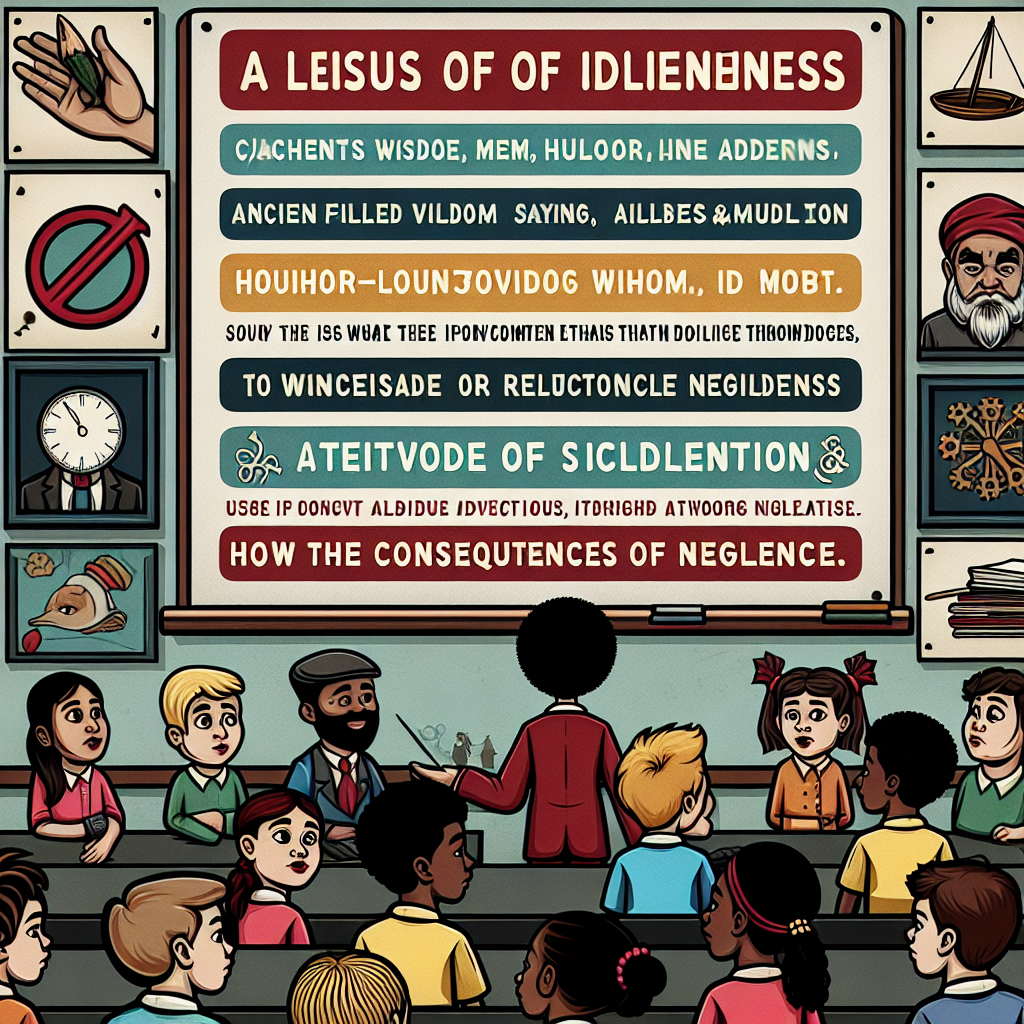Sayings and Proverbs About Laziness: Lessons for Children
Since the world and the earth, teachings passed down through proverbs and sayings have been a cultural bastion that has shaped the behavior and mentality of generations. And as far as laziness is concerned, Romanian folklore is rich in advice and admonitions. Let's discover them together and see how we can use them to guide our children's steps towards a bright and fulfilling future.
Development of Responsibility
In educating children, the development of responsibility is essential. Thus, they will learn to take initiative, avoid procrastination and understand that success comes through hard work.
Sayings such as "Work teaches a man", "Better a crooked leg than a torn corner of a quilt" or "Work is not a shame" are valuable resources to teach the little ones that laziness only brings regrets and wastes time precious. By teaching children the value of a day's work, we prepare them for an autonomous and prosperous future.
The Importance of Perseverance
Perseverance is another essential character trait that must be cultivated from an early age. "Drip by drop digs stone" or "Little by little makes big" are examples of folk wisdom that encourage children to persist, even when the results are not immediate.
Another popular saying, "Without work and without pain, the sun doesn't rise on your way", reminds the little ones that effort and hard work are necessary to get where they want to be.
Escape from Effort and Its Consequences
An important chapter in children's education is the awareness that avoiding effort has long-term consequences. The proverbs "He who gets up in the morning, goes far" and "Lazy is syrupy, but unfeeling" will illustrate this for them.
These teachings will show them that laziness may seem attractive at the moment, but ultimately leads to loss of opportunity and self-respect.
The benefits of Conscientious Work
On the opposite pole, the promotion of conscientious work as the foundation of personal development offers children a model to follow. "He who does not work, should not eat" or "Through work man is honored" encourages the active and participatory attitude, necessary for success in adult life.
By imparting these values, children will understand that success and personal satisfaction come from their own efforts and that they are duly rewarded.
How to Integrate the Teachings into Everyday Life
To integrate these teachings into children's daily lives, it is important to present them in a relevant context and model their behavior. For example, involve them in daily activities that show them that laziness can hinder their progress. Also, give rewards when they complete their tasks on time, showing them that their work is appreciated.
Encourage dialogue about the importance of work and responsibility, tell stories or examples from your personal life to illustrate the proverb "It's good to put the bone to work for a shroud of guests".
Conclusion
Laziness may seem like an attractive option at the moment, but ancient teachings reveal the painful truth: it does nothing good in the long run. It is our duty, as parents or educators, to transmit these teachings to children and guide them towards a bright future, full of achievements and fulfillments. By using these sayings and proverbs, we can provide the tools to develop strong character and a healthy work ethic, ensuring that future generations will be prepared to meet the world with open arms and minds ready to learn from any experience.














































































































































